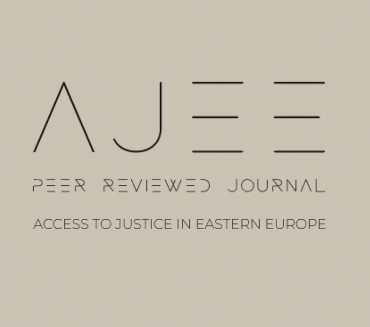1. Introduction and Project Background. – 2. Key Speeches and Insights from the Speakers. – 3. Conclusions and Policy Paper. – Annex. Beyond Conflict, Ukraine's Journey to Recovery Reform and Post-war Reconstruction: Policy Paper

1. Introduction and Project Background. – 2. Key Speeches and Insights from the Speakers. – 3. Conclusions and Policy Paper. – Annex. Beyond Conflict, Ukraine's Journey to Recovery Reform and Post-war Reconstruction: Policy Paper
Background:
The paper investigates the results and conclusions of the conference held on 29 November 2023 within the framework of the research project. The conference extensively discussed the current problems facing Ukraine amidst an aggressive ongoing war. Considerable attention was paid to the country's post-war recovery, necessitating significant reforms in various sectors of the national economy. Participants underscored the need for these reforms to be integrated rather than isolated initiatives, serving as a comprehensive solution for Ukraine's achievement of the SDGs and fulfilling the criteria for joining the EU and NATO. The paper delves into the main challenges for implementing such reforms, their main elements, and their relationship, all of which were discussed during the conference. Particular attention was paid to achieving and maintaining the country’s macroeconomic stability during military operations and identifying the main programs essential for revitalising Ukraine's economy. Furthermore, the paper presents successful cases of reform implementation at the micro level in state institutions.
Results and Conclusions:
Following the conference, a program document on the directions for the restoration and development in Ukraine was drafted. It pointed out the critical need for unity between European countries and the USA in supporting Ukraine and providing timely aid. In Ukraine, achieving unity between the government and business regarding the de-shadowing of the economy, reform of the tax system, customs service, and administration of basic taxes and fees emerged as an issue. This should create prerequisites for the inflow of investments into the Ukrainian economy, ultimately reducing the gap with European countries.
Silviu Nate
PhD (Military Sciences and Intelligence), Associate Professor of Security Studies, the Faculty of Social Sciences and Humanities, Lucian Blaga University of Sibiu, director of the Global Studies Center (GSC), Romania
silviu.nate@ulbsibiu.ro
Andriy Stavytskyy
Dr. Sc. (Economic), Professor of Economic Cybernetics, Faculty of Economics, Taras Shevchenko National University of Kyiv, Ukraine
a.stavytskyy@gmail.com
https://orcid.org/0000-0002-5645-6758
Răzvan Șerbu
Dr. Sc. (Economic), Professor of Economics, Faculty of Economic Sciences, Lucian Blaga University of Sibiu, Romania razvan.serbu@ulbsibiu.ro
https://orcid.org/0000-0003-1099-1330
Eduard Alexandru Stoica
Dr. Sc. (Economic), Associate Professor of Business Informatics, Faculty of Economic Sciences, Lucian Blaga University of Sibiu, Romania
eduard.stoica@ulbsibiu.ro
https://orcid.org/0000-0002-0693-8433
CO-AUTHORSHIP CONTRIBUTIONS
Conceptualization Silviu Nate, Andriy Stavytskyy
Data curation Răzvan Șerbu Formal Analysis Andriy Stavytskyy, Eduard Alexandru Stoica
Funding acquisition Silviu Nate
Investigation Andriy Stavytskyy
Methodology Andriy Stavytskyy
Project administration Silviu Nate
Supervision Andriy Stavytskyy
Writing – original draft Andriy Stavytskyy, Răzvan Șerbu, Eduard Alexandru Stoica
Writing – review & editing Silviu Nate, Andriy Stavytskyy, Răzvan Șerbu, Eduard Alexandru Stoica
Competing interests: No competing interests were disclosed. Despite Prof. Izarova, Prof. Kharlamova, and Dr. Eduard Stoica serving on the editorial board of AJEE and participating in the project, the manuscript underwent full peer review according to the journal's rules.
Disclaimer: The authors declare that their opinion and views expressed in this manuscript are free of any impact of any organizations.